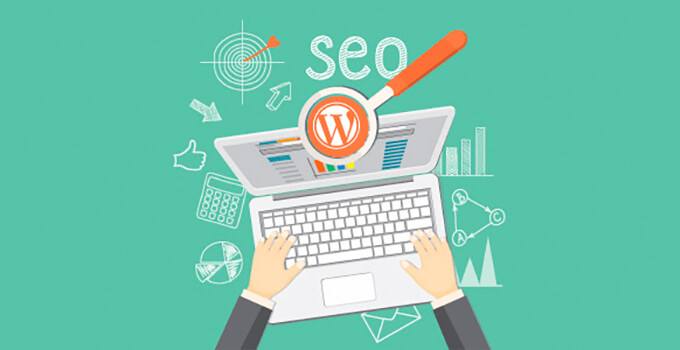Search Engine Optimization (SEO) plays a vital role in improving the visibility and ranking of your WordPress website in search engine results. By implementing effective SEO techniques, you can attract more organic traffic, increase brand awareness, and drive conversions. In this article, we will explore six powerful SEO techniques that can help boost your WordPress website’s visibility and improve its overall performance.
Why SEO is Important for Your WordPress Website
SEO is crucial for your WordPress website because it helps search engines understand your content and rank it appropriately. When your website appears higher in search engine results pages (SERPs), it increases the chances of attracting clicks and visitors. By optimizing your website for SEO, you can reach a wider audience, establish your online presence, and compete effectively in the digital landscape.
Choosing the Right Keywords
One of the fundamental aspects of SEO is selecting the appropriate keywords. Conduct thorough keyword research to identify the terms and phrases that your target audience is searching for. Use keyword research tools like Google Keyword Planner, SEMrush, or Ahrefs to find relevant keywords with high search volumes and low competition. Incorporate these keywords strategically into your website’s content, including headings, titles, meta descriptions, and image alt tags.
Content Optimization: Creating Valuable and Unique Content
Creating valuable and unique content is essential for both users and search engines. Develop high-quality content that addresses the needs and interests of your target audience. Ensure your content is informative, engaging, and well-structured. Use relevant keywords naturally within your content, but avoid keyword stuffing, which can negatively impact your website’s ranking. Regularly update your content and incorporate multimedia elements such as images, videos, and infographics to enhance user experience.
Optimizing Meta Tags and Page Descriptions
Meta tags and page descriptions are HTML elements that provide information about your web pages to search engines. Optimize your meta tags, including the title tag and meta description, to accurately describe the content of each page. Write compelling and concise meta descriptions that entice users to click on your website in search results. Include relevant keywords naturally within your meta tags, but ensure they remain relevant to the page’s content.
Building Strong and Valuable Backlinks
Backlinks, also known as inbound links, are links from other websites that point to your WordPress site. Building high-quality backlinks is an effective SEO technique to increase your website’s authority and credibility in the eyes of search engines. Focus on obtaining backlinks from reputable and relevant websites within your industry. Guest blogging, creating valuable content that other websites want to link to, and engaging in influencer marketing can help you acquire quality backlinks.
Improving Page Loading Speed
Page loading speed is a crucial factor in user experience and SEO. Optimize your WordPress website’s loading speed by compressing images, minifying CSS and JavaScript files, and utilizing caching plugins. A fast-loading website improves user satisfaction, reduces bounce rates, and signals search engines that your site provides a positive user experience. Regularly monitor your website’s speed using tools like Google PageSpeed Insights or GTmetrix and make necessary optimizations.
Enhancing Mobile Version of Your Website
With the increasing use of mobile devices, having a mobile-friendly website is essential for SEO. Optimize your WordPress website for mobile devices by utilizing responsive web design, which ensures that your site adapts to different screen sizes. Test your website’s mobile-friendliness using Google’s Mobile-Friendly Test tool and make necessary adjustments to improve user experience on mobile devices. Mobile optimization is not only crucial for SEO but also enhances user engagement and conversions.
Read more about website maintenance.
Utilizing SEO Plugins for WordPress
WordPress offers a range of SEO plugins that can simplify and enhance your SEO efforts. Plugins like Yoast SEO, All in One SEO Pack, and Rank Math provide features such as on-page optimization, XML sitemap generation, meta tag management, and content analysis. Install and configure a reputable SEO plugin that aligns with your website’s goals and follow the plugin’s recommendations to improve your SEO performance.
Monitoring and Analyzing SEO Results
After implementing SEO techniques, it’s crucial to monitor and analyze the results to determine the effectiveness of your strategies. Utilize tools like Google Analytics and Google Search Console to track important metrics such as organic traffic, keyword rankings, click-through rates, and bounce rates. Analyze the data to identify areas for improvement, make data-driven decisions, and continuously optimize your WordPress website for better visibility and performance.
Implementing these powerful SEO techniques can significantly enhance the visibility and performance of your WordPress website. By optimizing your website’s content, meta tags, backlinks, page loading speed, mobile version, and utilizing SEO plugins, you can improve your website’s search engine rankings, attract organic traffic, and achieve your online goals. Remember to monitor and analyze your SEO efforts regularly to stay on top of the ever-evolving digital landscape and continuously improve your website’s SEO performance.

